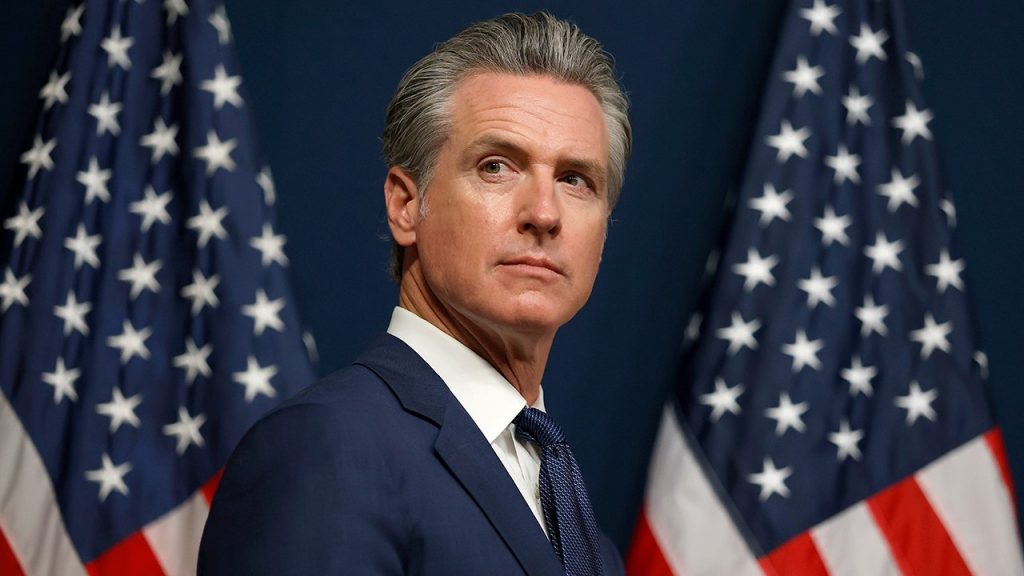Newsom’s Press Office Creates Stir with Social Media Comment about DHS Secretary Noem
In a digital landscape where every word can be scrutinized, California Governor Gavin Newsom’s press office found itself at the center of controversy after posting a cryptic message on social media platform X. The post, which stated “Kristi Noem is going to have a bad day today. You’re welcome, America,” immediately raised concerns about its intent and appropriateness regarding the Department of Homeland Security Secretary. The comment sparked swift reactions from government officials and triggered a formal referral to the U.S. Secret Service for threat assessment, highlighting the heightened sensitivity surrounding communications about public figures in today’s polarized political environment.
The backlash was immediate and came from multiple fronts. DHS Assistant Secretary for Public Affairs Tricia McLaughlin condemned the post as “ugly,” suggesting it read like a threat and criticizing the “keyboard warrior team” behind it. Acting U.S. Attorney for the Central District of California, Bill Essayli, took more formal action by referring the matter to the Secret Service, emphasizing a “zero tolerance” policy for direct or implied threats against government officials. Republican California Assemblywoman Kate Sanchez added to the criticism, suggesting that such remarks could potentially increase the likelihood of political violence in an already tense atmosphere. The incident reveals how quickly online communications from official government accounts can escalate into serious security concerns.
Hours after the controversial post created this firestorm, Newsom’s press office attempted to provide context by following up with information about a legislative package aimed at protecting immigrant communities and “holding Trump accountable” – apparently the development they had cryptically referenced as giving Noem “a bad day.” The clarification highlighted the Governor’s signing of several bills designed to “protect Californians, respond to federal overreach and push back against Trump and Stephen Miller’s ‘secret police’ tactics in California.” This explanation, however, came after the damage had already been done, demonstrating the risks of using provocative language without immediate context, especially when referring to public officials.
The Secret Service responded to the situation professionally, acknowledging receipt of the Department of Justice’s communication while maintaining their standard protocol. Spokesman Anthony Guglielmi noted that while the agency couldn’t comment on “specific protective intelligence matters,” they are obligated to “vigorously investigate any situation or individual, regardless of position or status, that could pose or be perceived as posing a threat to any of our protectees.” Guglielmi particularly emphasized this responsibility “in a politically charged climate, such as this.” The incident underscores how government agencies must take potential threats seriously, even when they originate from other government entities or might be intended as political rhetoric rather than actual threats.
The legislation that prompted the controversial post included a significant measure prohibiting most law enforcement – including federal immigration agents – from concealing their faces while carrying out official duties. At the press conference in Los Angeles where he signed these bills, Newsom framed the legislation as a defense of American values: “We celebrate that diversity. It’s what makes California great. It’s what makes America great. It is under assault,” he said, adding, “This is the United States of America, and I’m really proud of the state of California and our state of mind that we’re pushing back against these authoritarian tendencies and actions of this administration.” The governor’s comments reflected the deeply divided perspectives on immigration enforcement and federal authority that characterize current political discourse.
This incident highlights several troubling aspects of modern political communication: the casualness with which provocative language is deployed on social media, the blurring lines between political criticism and perceived threats, and the challenges of maintaining civil discourse in a polarized environment. While Newsom’s press office may have intended their post as political commentary or as a teaser for policy announcements, the ambiguity of their language and the omission of context created a situation where security concerns legitimately arose. As political tensions continue to run high across America, this episode serves as a cautionary tale about the responsibility that comes with official communications, particularly when they target individuals by name in ways that could be interpreted as threatening. The swift intervention by security officials also demonstrates the seriousness with which potential threats against public officials are treated in the current climate of concern about political violence.


